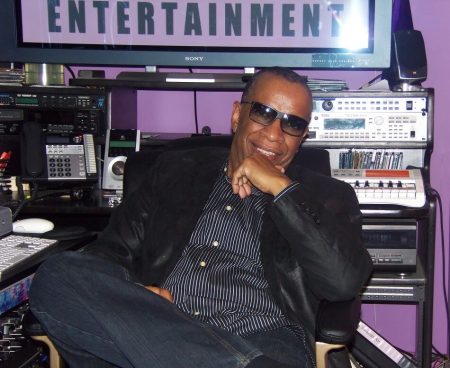
Recording Connection mentor Lee Evans
Recording Connection mentor Lee Evans has more than three decades of experience in the music industry. Since starting out as a keyboardist in the 80s, he’s played, toured, and recorded with numerous talents throughout the musical spectrum, from Willie Colon to Afrika Bambaataa, Harry Belafonte to Queen Latifah, Cyndi Lauper to Doug E. Fresh.
Today, as founder and head engineer of
Jambox Entertainment Studios (New York, NY), Evans works with an array of independent and signed artists (Atlantic, Universal, Sony, Motown) and on projects for corporate clients ESPN, MTV, VIBE, Verizon, VH1, and more.
We recently connected with Evans to learn more about his journey into the studio, get his advice for working with artists, and to find out what he says it takes to train with him and to get going in the industry.
You actually started playing, performing, and studying music at a young age. What led you into audio specifically?
“I was intrigued by the first electronics. In the 70’s, they came out with an Odyssey and a Minimoog, and those things blew me away. I heard a lot of crazy noises coming from them, and when I went to sleep that night I had nightmares that this thing was chasing me. So when I woke up in a hot sweat, I was like, ‘Oh my goodness, this is crazy.’ So I became an electronic musician so I could kind of conquer the beast.
Then I met up with a friend and I started a studio out of my apartment in the Bronx. We had a lot of people coming by and I guess I was producing them, [although] I didn’t know what a producer was at the time but I was making instrumental music with my keyboards. I would spend every dime that I could get on equipment. I would buy it, then I would learn it, and then that’s all I would do is just get really good at making music. So I started getting all these people coming by my place, just this little basement in the South Bronx and then I blew up from there. After that, I started getting labels calling me up and they would have me come into bigger studios and record some records…And everything kind of launched off from that point.”
What’s your advice for working with artists in the studio? How do you define your role as a producer?
“As a producer, at the end of the day, it’s a bit of a psychological game. You have to cater to the artist. You have to get them to feel comfortable enough to work with you. You can’t take an artist to the next level unless they’re comfortable enough to let it all out. A lot of artists are a bit insecure about what they do. So you have to make them feel secure about working with you…
If you’re going to critique the artist, always have a fix behind it. It’s fine to critique but don’t just say, “No, that sucked,” with no fix and keep doing the same thing. You have to be able to come up with a fix for that. A lot of times you might have to go through 10 different fixes and then the artist gets drained and you might have to come back to it another day.
I think an artist/producer relationship is a lot like a regular relationship. Once you have that “marriage,” they’re going to get their best music by working with the best producer. And the best producer is somebody that’s going to cater to them. It’s not necessarily somebody that’s big in the game already. It’s just somebody that understands their music and their mindset and who can cater to them and help to elevate what they’re doing.”
What’s your advice for people who want to work in the music industry?
“They’ve got to develop a thick skin…In this business it’s really important to make noise…You have to have that little bit of that bragging-ness about you. Let people know, ‘Hey, this is what I do, this is where I’m going.’ That’s super important. They say closed mouths don’t get fed. I’ve had students and I’ve had people come in and, you know, they’re there but they don’t say anything and I don’t know that they can make beats and I don’t know that they can play an instrument or that they’re a good singer or anything like that…
You have to get involved. You have to get experience under your belt on a lot of different levels. You have to be used to talking and communicating with other people, to collaborate, to make music with, to listen to your music, to critique, to help you to get yourself out there. You know, all of these things are really important; that’s what I would leave with anyone coming up in the industry.”
What qualities do you look for in potential apprentices (externs)?
“I look for initiative. I look for
how they do a job. There’s a saying that how you do anything is how you do everything… So I look for somebody that has the initiative to get the job done to a certain point, and not just complete a task, but to get it done to the level of quality and acceptance that we have at the studio. So you’re not just completing a job, you’re getting it done right…The other thing is that you need to get involved as much as you can.”
* * * * *


